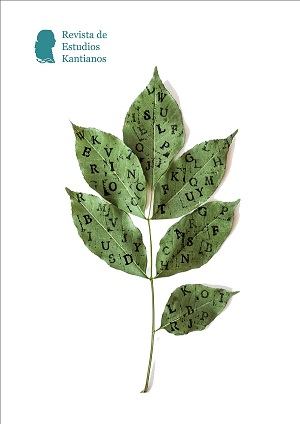Schopenhauers Kritik an Kants Freiheitsantinomie und ihrer Auflösung
DOI:
https://doi.org/10.7203/ Abstract
Abstract
Der Aufsatz zeigt, mit welchen Argumenten Schopenhauer Kants dritte als eine nur scheinbare Antinomie darzustellen versucht, die keiner Auflösung bedürfe. Die Prüfung dieser Argumente ergibt, dass Schopenhauers Lehre vom Ding an sich als freien Willen eine metaphysische Position repräsentiert, die Kant in der dritten Antinomie dem von ihm kritisierten transzendentalen Realismus zurechnen würde. Schopenhauers Kritik, Kant schließe in der Auflösung unrechtmäßig auf die Existenz des Dinges an sich als kausale Ursache der Erscheinung, erweist sich dabei als unzutreffend, und seine These vom unmittelbaren Bewusstsein der Freiheit des Willens als bloße Gegenbehauptung. Das heißt Schopenhauers grundsätzlich positive Adaption und Fortentwicklung der Kantischen Freiheitstheorie vermag gegen die Kantische Metaphysikkritik selbst nicht zu bestehen.
 Downloads
Downloads
Downloads
Published
How to Cite
-
Abstract766
-
PDF (Español)268
Issue
Section
License
![]()
The authors who publish in this journal agree with the following terms:
- The authors retain their copyright and guarantee to the journal the right to be the first to publish the work and to license it under a Creative Commons Attribution License that allows others to share the work with an acknowledgement of its authorship and the initial publication in this journal.
- Authors may separately establish additional agreements for non-exclusive distribution of the version of the work published in the journal (for example, placing it in an institutional repository or publishing it in a book), with acknowledgement of its initial publication in this journal.
- Authors are allowed and encouraged to disseminate their work electronically (e.g., in institutional repositories or on their own website) before and during the submission process, as this can lead to productive exchanges as well as earlier and greater citation of published work (see The Effect of Open Access).








